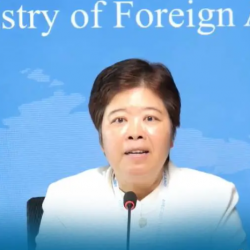Thai tragedy in Israel a wake-up call to tackle stark inequality in society

The high number of Thai migrants who were killed in the brutal attack on Israel by Hamas militants also happens to be a reflection of the stark inequality in Thai society that is forcing poor people to make risky choices.
As of October 15, 28 Thai workers were reported dead, 16 were injured, and 17 were assumed to have been taken hostage. It was the highest death toll among foreign nationals who were killed in the brutal raid by Hamas gunmen on October 7 that caught Israel completely off guard.
Around 30,000 Thai migrants are employed in Israel’s agricultural sector, 5,000 of them close to the border with the Palestinian Gaza strip, according to the Labour Ministry.
Lae Dilokvidhyarat, an associate professor at Chulalongkorn University, says the tragedy of Thai workers in Israel throws light on the serious issue of income inequality in Thai society and the wide gulf in development between Bangkok and other parts of the country.
“Most of the workers [in Israel] are from Isaan [Northeast], which is the poorest region in the country. They had to take up these risky assignments as they could not find decent jobs at home,” Lae said.
“As the tragedy unfolded, I did not see the Labour Ministry show much care for the Thai families that lost their sons and daughters in Israel,” he lamented.
Low wages at home
Many of them went abroad to earn a higher income to support their families and build homes. Jobs in their home towns are unable to provide them adequate income to meet their needs.
Thailand’s social class is like a pyramid where a few sit at the top, while the majority languish at the bottom. People from poor families do not have a chance to access high-quality education, so they have to sell their labour and often risk their lives working in hostile areas, said Lae.
The role of the government is to expand the middle class, he said. Raising the minimum wage is not enough. You need to upskill and reskill workers, and the government should provide financial support during the training period, such as wages for those participating, he suggested.
The government should introduce a policy that would deter workers from seeking jobs abroad, by creating commensurate opportunities in their homeland. Or, the government should find foreign destinations for workers that would expose them to far lower risk than a country like Israel, he added.
Unequal development
Yongyuth Chalamwong, research director at the Thailand Development Research Institute, shares Lae’s view that the large number of Thai migrants working in Israel reflects the inequality between Bangkok and the development in the provinces.
Bangkok has a lot of quality infrastructure, including mass-transit rail services, while the regions do not have the same level of development. So people have to migrate to Bangkok or seek jobs overseas to earn a decent income, he pointed out.
The higher income in Israel lures them as wages in Thailand’s provinces are much lower, or about 300 baht per day, which is barely enough for sustenance.
“As far as the Israel situation is concerned, it was a tragedy that the workers were in the wrong place at the wrong time, as the attack by Hamas happened unexpectedly,” said Yongyuth.
“The Hamas militants do not like Thai workers, as we have been viewed as supporters of Israeli expansion. When, in reality, Thai workers simply go there for economic reasons. So we are the victims,” he said.
Making risky choices
Previously, the number of Thai workers was only a few hundreds but now the number has risen to several thousands. Despite the high risk of war, many still stay in Israel, as they have large debts to repay, he said.
“I think the government may need to get them back and negotiate with their employers to hire them again after the war ends,” he suggested.
Some of them may stay on in Israel, far from the Gaza border. Moving from one employer to new employers is a normal practice in international labour markets, he added.
The lure of overseas employment
Income inequality has been high in Thailand for over 30 years. Following the percentile system, people were divided into 100 groups based on income earned.
It was found that each person in the 1st -10th percentile had an income of 2,096 baht per month on average between 1988-2021, compared with the 100th percentile, where each person had a monthly income of 89,784 baht, or 42.8 times higher than that of the lower income groups over the same period, according to the National Economic and Social Development Council (NESDC), a state-think-tank.
When the population is divided into 10 groups to assess wealth — which aggregates the value of all assets owned by a person — it was found that people in the fifth to ninth decile found their net worth grew by 12.4 per cent in 2021 compared with 2019. The net worth of the 10th decile increased 10.5 per cent. In comparison the net worth of the first to fourth decile was up just 7.4 per cent, according to the NESDC.
Though the net worth of every group increased in 2021, the total net worth of the richest group (decile 10) was much higher than other groups. The total value of assets owned by the top decile was estimated at 2,093,063 baht per person on average. In stark comparison, the net worth of the bottom 40 per cent was 344,354 baht/person and that of the middle 50 per cent was 646,755 baht/person.
This means the wealth of the richest group was 6.1 times and 3.2 times of bottom and the middle groups respectively, according to the NESDC.
The unemployment rate in Thailand has been usually low for many years, and the country has had to hire workers from neighbouring countries to make up labour shortages. For example, the unemployment rate was just 1.06 per cent in the second quarter of this year. “The statistics of the job market is deceptive, as most of the jobs are low-paying, so many Thais seek jobs overseas,” said Lae.
By Thai PBS World’s Business Desk






